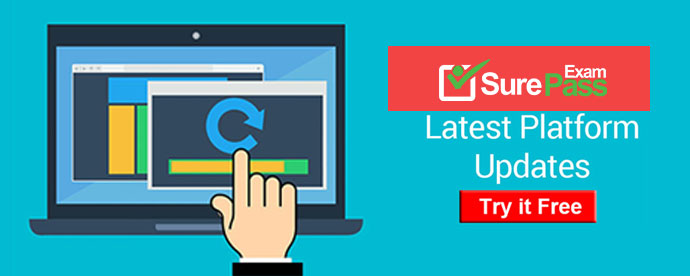300-070 Exam Questions - Online Test
300-070 Premium VCE File

150 Lectures, 20 Hours

Q1. Which distribution algorithm is used for a route group?
A. Circular, top down.
B. Longest idle, broadcast.
C. Circular, top down, longest idle, broadcast.
D. Top down, broadcast, circular.
Answer: A
Explanation:
Reference:
Page 199
Cisco Unified Communications Manager Administration Guide, Release 10.0(1)
Q2. Which three commands show the output of an active video call? (Choose three.)
A. show vrm active_calls
B. show call active video brief
C. show voip rtp connections
D. show voice call
E. show voice call summary
F. show video dsp
Answer: B,C,E
Q3. What are four features of Cisco Unified Border Element? (Choose four).
A. Protocol Interworking.
B. Bandwidth Control.
C. Admission Request.
D. Automated Alternate Routing.
E. Address Hiding.
F. Security.
G. Video Integration.
Answer: A,F,G
Explanation: Reference:
Page 248
CIPTV110SG_Vol1
Q4. Which three statements about the default VoIP dial peer are true? (Choose three.)
A. VAD is disabled.
B. RSVP is not supported.
C. Only the G.711 codec is supported.
D. The G.729 and G.711 codecs are supported.
E. Fax-rate service is supported.
F. DTMF relay is supported.
Answer: B,D,E
Q5. Which two codecs are supported by the Cisco Unified Communications Manager software conferencing media resource? (Choose two.)
A. G.723
B. G.729
C. wideband
D. GSM
E. G.711
Answer: C,E
Q6. Which three descriptions are true? (Choose three.)
A. The class of service is a parameter that is used for traffic classification and marking at Layer 2.
B. The IP precedence is a parameter that is used for traffic classification and marking at Layer 2.
C. The differentiated services code point is a parameter that is used for traffic classification and marking at Layer 2.
D. The class of service is a parameter that is used for traffic classification and marking at Layer 3.
E. The IP precedence is a parameter that is used for traffic classification and marking at Layer 3.
F. The differentiated services code point is a parameter that is used for traffic classification and marking at Layer 3.
Answer: A,E,F
Q7. You are performing route pattern configuration. You need to ensure that internal extensions are automatically expanded to full external phone numbers for calling line information on outgoing calls. What should you use?
A. calling extension expansion
B. called number expansion
C. external number mask of the called party
D. external phone number mask of the calling party
Answer: D
Q8. Which two options are resources in a route list that route calls that match a defined route pattern? (Choose two.)
A. gateways
B. route groups
C. virtual machine servers
D. IP phones
Answer: A,B
Q9. Where do you configure the region for a group of devices?
A. Common device profile.
B. Device defaults.
C. Common device configuration.
D. Common phone profile.
E. Device pool.
Answer: E
Explanation: Reference:
Page 73
Cisco Unified Communications Manager Administration Guide, Release 10.0(1)
Q10. Where do you configure a SIP route pattern?
A. Call Routing > Route/Hunt > SIP Route Pattern
B. System > SIP Route Pattern
C. Call Routing > SIP Route Pattern
D. Advanced Features > SIP Route Pattern
Answer: C
- [2021-New] Cisco 300-208 Dumps With Update Exam Questions (1-10)
- [2021-New] Cisco 210-260 Dumps With Update Exam Questions (1-10)
- [2021-New] Cisco 400-251 Dumps With Update Exam Questions (51-60)
- [2021-New] Cisco 300-320 Dumps With Update Exam Questions (15-24)
- Cisco 400-151 Study Guides 2021
- [2021-New] Cisco 400-051 Dumps With Update Exam Questions (111-120)
- [2021-New] Cisco 300-070 Dumps With Update Exam Questions (14-23)
- [2021-New] Cisco 400-101 Dumps With Update Exam Questions (481-490)
- [2021-New] Cisco 300-101 Dumps With Update Exam Questions (14-23)
- [2021-New] Cisco 300-075 Dumps With Update Exam Questions (11-20)

